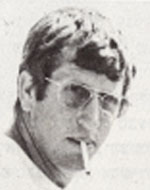Ehud, son of Malka and Avital, was born on March 3, 1939 in Ra’anana, and grew up and studied in the children’s group of Kibbutz Maoz Hayim in the Beit Shean Valley. Ehud was drafted into the IDF in the middle of August 1957. Ehud was trained in many courses, among them a course for infantry officers and a course for armored corps officers, and served as commander of the ” That. After completing his mandatory service, he returned to Maoz Haim. He worked in the field of raising cattle for meat and traveled a lot among the nearby Jordan tributaries, in the thicket of the river’s genius. When the veterans of the cattle industry retired, Ehud accepted the concentration work, instituted order and registration, and fought for the existence and expansion of the industry. He was tied to his cows and his legs. Wandered with the flock in the Gilboa and did not hesitate to cross the shallow waters of the Jordan River to return cows who crossed the border by mistake. When Ehud married his girlfriend Chava, he left the farm and lived in Karmiel. In the waiting period before the Six-Day War, Ehud commanded a reconnaissance unit, and in the first battles Ehud took part, but was wounded in the face and body when he left at the head of a reconnaissance unit In the direction of Jenin, and even after he left the hospital, he could not move his foot, but was determined to be disabled, but he did not give up his re-assignment in a combat unit. In 1970 he joined the career army and served as a commander in the Armored Corps in the south of the country and a year later as commander of a company in the Golan. Religion-new armor. Friends show that logic, seriousness, thought, a hint of harsh cynicism and a joyful smile, marked Ehud’s image and his actions in the IDF: The IDF had shelter and home with the failure of his marriage, but Ehud the father found it hard to accept the fact of distance from his son, Who grew up in a stronghold of life. Ehud loved his tender son and saw his suffering and longing. Every farewell on weekends was difficult for both father and son. In the summer of 1972, Ehud became acquainted with Shoshana, and the two began to search for their future and sought to give Eyal their full love: During one of his army vacations in Tishrei 5733 He rushed to join an armored unit that had invaded Lebanon and purified two villages where terrorists were hiding. For this action, for his courage and devotion, the brigade commanders gave him a commendation. Captain Ehud completed his service in the career army in August 1973. Long years of service were behind him, ahead of him – plans for the future in the agriculture and dreams of establishing a family nesthot. On the day of Yom Kippur, 5734, a few weeks after he was discharged from the army, Ehud was at his home in Maoz Haim, and was not yet assigned to reserve duty and was not given a summons. The brigade in the southern sector, and took part in the difficult fighting, Ehud participated in the abortive attempt to conquer Tel Shams and conquer the Tel in a night attack after the occupation of Tel Shams blocked the Sa’sa road and blocked Syrian infantry and armor attacks. On October 15, 1973, Ehud was killed by an anti-tank shell fired by the Syrians and brought to eternal rest in the cemetery in Maoz Haim. He left behind a son, a father, a mother, two brothers and a sister. After his fall, he was promoted to the rank of major. He was awarded the “Medal of Valor” for his work in the Yom Kippur War. This is the text of the medal: “In witness and testimony that 415444 Maj. Description of the incident: On October 6, 1973, Major Ehud Dafna was in his home when he heard about the outbreak of the fighting and since he was not assigned to another unit, he returned to the Golan Heights and organized a company from the remnants of the tanks and crews of the brigade in the southern sector. He took part in the fierce fighting, followed by the head of his company in the invasion of Syria, participated in the first attempt to conquer Tel Shams, and when he did not immigrate, participated in the conquest of the Tel in a night attack. After the conquest of the tell, the Sa’sa road was blocked and the Syrian infantry and armored vehicles were attacked. In this battle he was injured and killed. In his actions and fighting, he displayed great courage, resourcefulness, and dedication to the task – despite physical limitations, as a cripple from the Six-Day War. “A family memoir of memoirs and reflections on the character and path of the rabbi- Captain Ehud Dafna of blessed memory. In the 2017 investigation it was updated that he was awarded the Medal of Valor and the Cpl.
